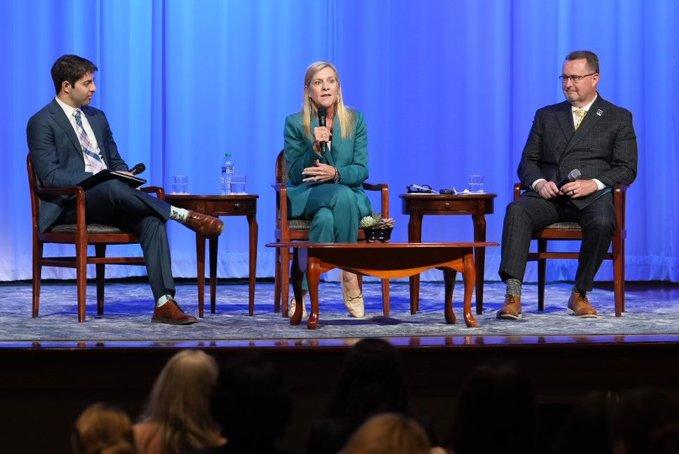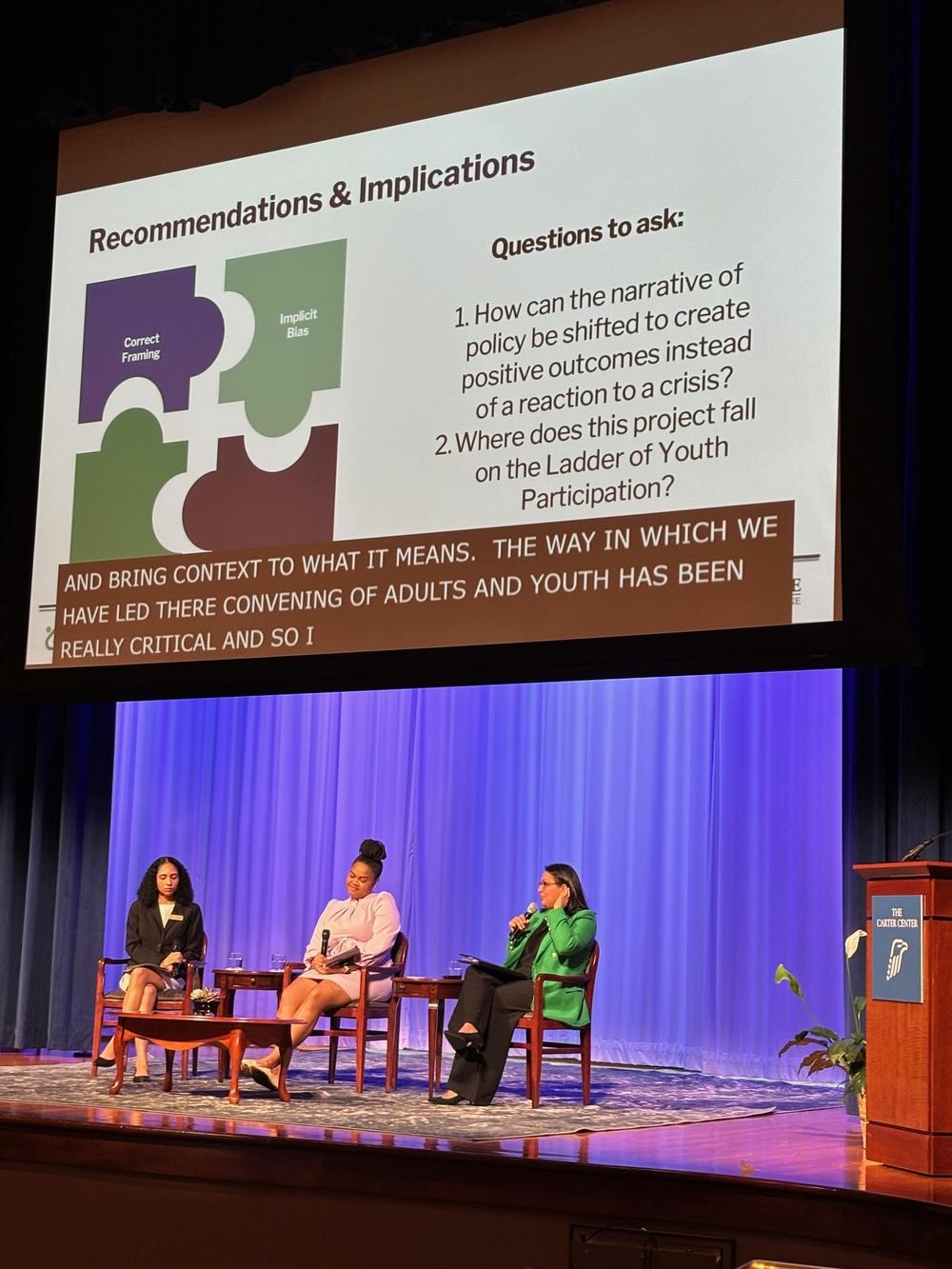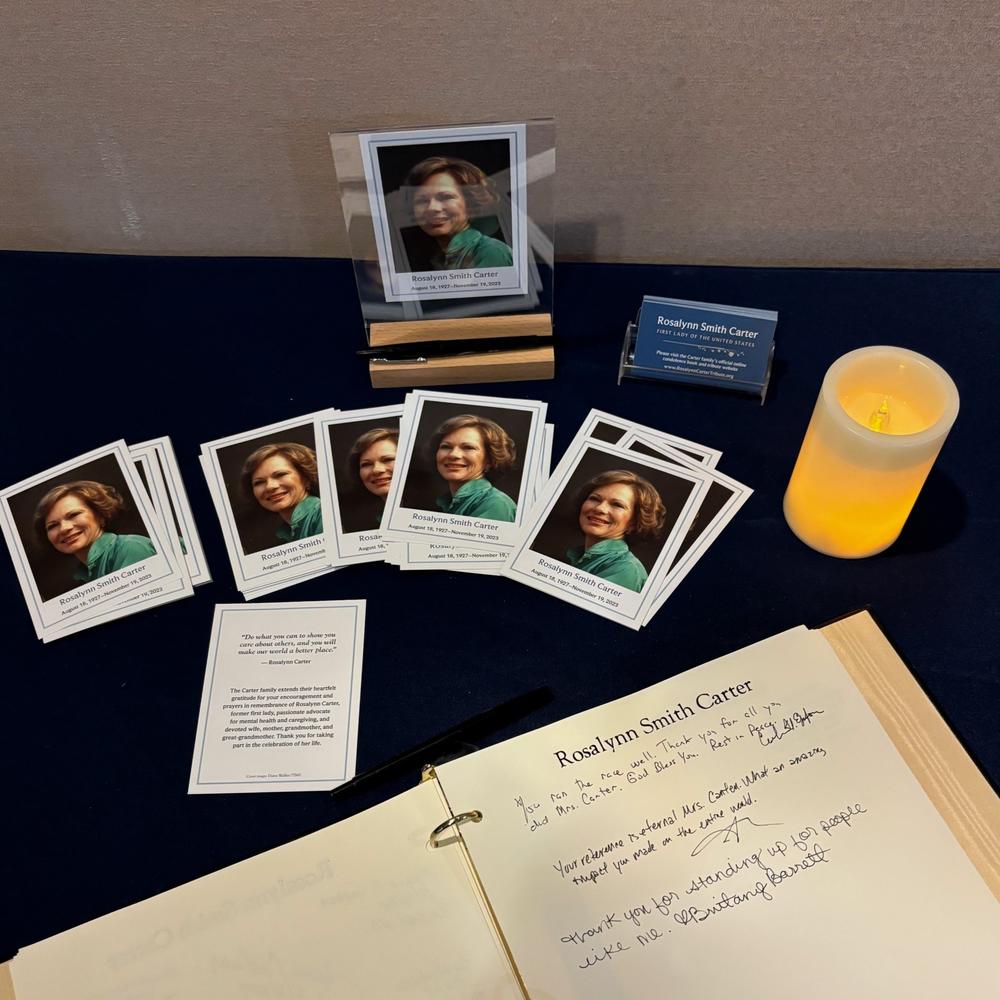
Caption
Ryan Greenstein moderates a panel with Georgia first lady Marty Kemp and DBHDD Commissioner Kevin Tanner offer insights on mental health advocacy and the importance of the 988 suicide crisis line during the Rosalynn Carter Georgia Mental Health Forum May 14, 2024.
Credit: The Carter Center




